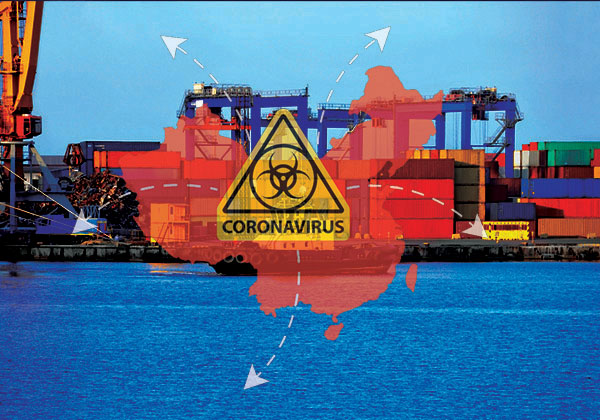FMC urges Congressional leaders to address port terminal needs During COVID-19
"The absence of the marine terminal operations trade, and the longshore workers working there, would effectively end the trade in goods and supplies necessary to combat COVID-19 at present, and in the future, to help restore economic prosperity.”
In letters to the Chairmen and Ranking Members of the House Committee on Transportation and Infrastructure and the Senate Committee on Commerce, Science, and Transportation, Federal Maritime Commissioners (FMC) Carl W. Bentzel and Louis E. Sola urged Congressional leaders to consider a means to help alleviate and bridge the financial gaps that could jeopardize continued healthy operation of the nation’s domestic marine terminal industry and maritime transportation system.
The system of leasing marine terminals at U.S. ports is predicated on projected cargo volumes, and projections indicate that sustained demand reductions will make it financially difficult for terminals to sustain lease payments. However, the continued operation of our ports and terminals during this time is critical.
In their letter, the Commissioners also praised the essential work of marine terminal operators and longshore labor during this ongoing COVID-19 crisis. The men and women who work to deliver our essential needs such as the merchant marine, the longshoremen, railroad laborers and truckers, along with other transportation system service providers, are hard at work during the COVID-19 health crisis. We are indebted to their continued service, and they deserve the thanks of our nation.
“It is our understanding that marine terminal operators have tried to engage with their port authority landlords to discuss the financial impacts of drastic reductions of cargo on lease economics, the FMC told LM. “To date, however, little progress has been made to help adjust lease payments considering market conditions.”
As the Commissioners indicated in their letter:
“Approximately 90% of our overseas trade is transported by sea, including everything ranging from raw materials that support the country’s industrial base to essential medical equipment used by healthcare workers. The absence of the marine terminal operations trade, and the longshore workers working there, would effectively end the trade in goods and supplies necessary to combat COVID-19 at present, and in the future, to help restore economic prosperity.”













